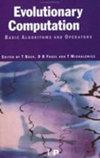Discovering and Exploiting Sparse Rewards in a Learned Behavior Space
IF 3.4
2区 计算机科学
Q2 COMPUTER SCIENCE, ARTIFICIAL INTELLIGENCE
引用次数: 0
Abstract
Learning optimal policies in sparse rewards settings is difficult as the learning agent has little to no feedback on the quality of its actions. In these situations, a good strategy is to focus on exploration, hopefully leading to the discovery of a reward signal to improve on. A learning algorithm capable of dealing with this kind of setting has to be able to (1) explore possible agent behaviors and (2) exploit any possible discovered reward. Exploration algorithms have been proposed that require the definition of a low-dimension behavior space, in which the behavior generated by the agent's policy can be represented. The need to design a priori this space such that it is worth exploring is a major limitation of these algorithms. In this work, we introduce STAX, an algorithm designed to learn a behavior space on-the-fly and to explore it while optimizing any reward discovered (see Figure 1). It does so by separating the exploration and learning of the behavior space from the exploitation of the reward through an alternating two-step process. In the first step, STAX builds a repertoire of diverse policies while learning a low-dimensional representation of the high-dimensional observations generated during the policies evaluation. In the exploitation step, emitters optimize the performance of the discovered rewarding solutions. Experiments conducted on three different sparse reward environments show that STAX performs comparably to existing baselines while requiring much less prior information about the task as it autonomously builds the behavior space it explores.在学习行为空间中发现和利用稀疏奖励。
在稀疏奖励设置中学习最优策略是困难的,因为学习代理对其行动的质量几乎没有反馈。在这种情况下,一个好的策略是专注于探索,希望能发现奖励信号来改进。能够处理这种设置的学习算法必须能够(1)探索可能的代理行为,(2)利用任何可能发现的奖励。已经提出了需要定义低维行为空间的探索算法,在该空间中可以表示由代理的策略生成的行为。需要先验地设计这个空间,使其值得探索,这是这些算法的主要限制。在这项工作中,我们介绍了STAX,这是一种设计用于在飞行中学习行为空间并在优化发现的任何奖励的同时对其进行探索的算法。它通过交替的两步过程,将行为空间的探索和学习与奖励的利用分离开来。在第一步中,STAX构建了一系列不同的策略,同时学习在策略评估期间生成的高维观察的低维表示。在开发步骤中,发射器优化所发现的有回报的解决方案的性能。在三种不同的稀疏奖励环境中进行的实验表明,STAX的表现与现有基线相当,同时在自主构建其探索的行为空间时,所需的关于任务的先验信息要少得多。
本文章由计算机程序翻译,如有差异,请以英文原文为准。
求助全文
约1分钟内获得全文
求助全文
来源期刊

Evolutionary Computation
工程技术-计算机:理论方法
CiteScore
6.40
自引率
1.50%
发文量
20
审稿时长
3 months
期刊介绍:
Evolutionary Computation is a leading journal in its field. It provides an international forum for facilitating and enhancing the exchange of information among researchers involved in both the theoretical and practical aspects of computational systems drawing their inspiration from nature, with particular emphasis on evolutionary models of computation such as genetic algorithms, evolutionary strategies, classifier systems, evolutionary programming, and genetic programming. It welcomes articles from related fields such as swarm intelligence (e.g. Ant Colony Optimization and Particle Swarm Optimization), and other nature-inspired computation paradigms (e.g. Artificial Immune Systems). As well as publishing articles describing theoretical and/or experimental work, the journal also welcomes application-focused papers describing breakthrough results in an application domain or methodological papers where the specificities of the real-world problem led to significant algorithmic improvements that could possibly be generalized to other areas.
 求助内容:
求助内容: 应助结果提醒方式:
应助结果提醒方式:


